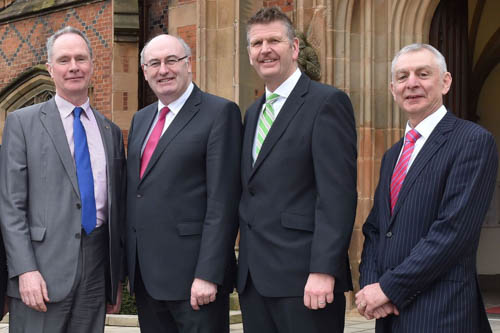Farm commissioner Phil Hogan has declared his commitment to reducing the red tape which is slowly enveloping agriculture in the EU. This will be warmly welcomed by every farmer and every business in the agrifood sector as we face a steady stream of regulation from Brussels. Much of the Brussels output is based on genuine concerns around food safety, the environment and issues which can have positive outcomes for farmers and consumers.

An example of a proposal which has no such redeeming features is the regulation which would permit regions within the EU to ban the use of Genetically Modified food and feed materials. This proposal threatens the supply of soya and other essential proteins into the EU and would be disastrous for the livestock sector. It seems to be meeting opposition on all fronts, however, as the European Parliament's plenary session has rejected the Commission's proposal. This follows earlier defeats for the proposals at the EU Agriculture committee and at the Environment committee. A call for a moratorium on new GM authorisations was also rejected while the parliament voted in favour of an amendment calling on the Commission to submit a new proposal.
Charging for Regulation - Progress is being made on the proposal on official controls which aims to shift all the cost of regulation in the agrifood sector on to the businesses involved. This would add substantial cost into the food chain as every inspection made and sample analysed would be charged to the business. The Council of the European Union has reached a compromise position on the key issues of charging and competency of controls staff and it appears that there will be no requirement to extend mandatory charges to the feed sector. UK negotiators claim to have successfully delivered greater flexibility in key areas and fought off increasing prescription, supporting their aims of smarter, more efficient controls
Medicated Feed Proposals - These proposals threaten to bring an end to the practice of administering medicines to livestock through feed. The EU Parliament has decided that the Medicated Feed file overlaps with another piece of legislation, the Veterinary Medicinal Product regulations, and therefore they will be treated in tandem. The timescale of both the VMP file and the medicated feed file has subsequently slipped back in committee, and will not be voted until mid February. The feed trade have briefed MEP’s on the various proposals and amendments in the hope that a workable solution can be achieved.
Dairy Intervention - One very positive measure which would earn many friends for Mr Hogan in this part of the world would be the introduction of an effective intervention scheme for dairy products. The commissioner seems determined to resist this one as local milk producers continue to face a bleak winter with milk prices well below the cost of production.
